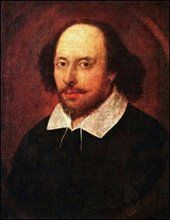
Telemachos and Mentor
Schema: several of the SAT questions of the day had to do with tense agreement. One technique you need to think about developing is a plan for attacking questions. Look for obvious and typical: subject-verb agreement and pronoun antecedent agreement.
A lot of ground has been covered. We are looking at the concept of xenia as a theme in the
Odyssey. Xenia is the Greek ideal of hospitality, the guest-host relationship. There are five persons, types, or xenos: guest, host, stranger, foreigner, friend. Every situation features a guest and host and they are either one or two the other xenos, as well.
Remember that the
Odyssey is an epic of nostos (homecoming, peace) while the
Iliad is an epic of kleos (name, reputation, war). Achilles is a hero of violence and body, a hero of kleos. Odysseus (Ulysses) is a hero of both nostos and kleos. Homer makes this clear when Odysseus announces himself to Alkinoos and his court.
Some notes on the text: Books 1-4 are the Telemachy, about Telemachus and his mother, Penelope. He goes on a quest to find his father and experiences the archetypes of loss of innocence, initiation and water. We see Penelope as similar to Ulysses in her cunning ploy with the tapestry. We meet our hero, Odysseus, in Book V. He is a captive of Kalypso but is set free at the request of Zeus (via Mercury/Hermes). Neptune sees him on the open ocean and makes trouble for him (he hates Odysseus) He washes up on the land of the Phaiakians, meets Nausikaa in Book VI, King Alkinoos and Queen Arête in Book VII, and they have games and a banquet in book VIII (where we see Homer as Demodokos, the blind poet).







